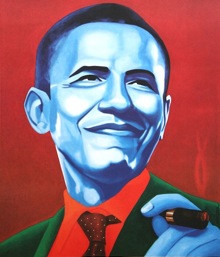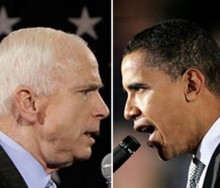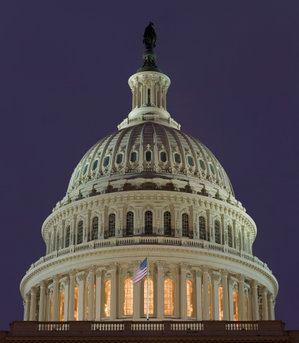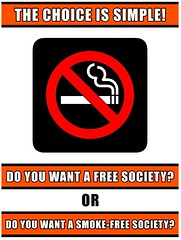Stogie News: FDA Regulation Threatens Cigars
6 Jul 2009
President Obama signed the so-called “Family Smoking Prevention and Tobacco Control Act” into law on June 22, placing tobacco under the jurisdiction of the FDA. While the bill, passed by the House and Senate last week, is primarily directed at cigarettes, it could have significant ramifications for cigars and other tobacco products.
 Specifically, it includes restrictions on tobacco advertising (mandating all cigarette ads be black and white text only and eliminating tobacco sponsorships of sporting events); bars “flavored” cigarettes (including clove, spice, and “candy flavors” but not menthol); requires larger warning labels on packaging; prohibits describing cigarettes as “light,” “mild,” or “low tar;” mandates ingredient disclosure; and gives the FDA the sole authority to approve all new tobacco products.
Specifically, it includes restrictions on tobacco advertising (mandating all cigarette ads be black and white text only and eliminating tobacco sponsorships of sporting events); bars “flavored” cigarettes (including clove, spice, and “candy flavors” but not menthol); requires larger warning labels on packaging; prohibits describing cigarettes as “light,” “mild,” or “low tar;” mandates ingredient disclosure; and gives the FDA the sole authority to approve all new tobacco products.
Not once does the new law specifically refer to premium or handmade “large cigars,” but that doesn’t mean it isn’t a major threat to cigar manufacturers and the choices available to cigar smokers. Nearly every provision in the act would be a significant blow if applied to cigars.
So it is clear that the precedent has been set for the regulations to be applied to cigars as well, possibly even without an act of congress. Recently, when I spoke to a number of cigar makers at Famous Smoke Shop’s Cigar Expo, they expressed growing concerns over the prospect of FDA regulation of tobacco.
Charlie Toraño called FDA regulation of cigars a “grave threat” and predicted that politicians could move to regulate cigars sooner than three years from now. He was particularly worried about the marketing restrictions, and noted that holding promotional events where they give out free samples would almost surely be prohibited. He also observed that no one in the industry was prepared for ingredient disclosure, which would cost huge sums in testing and documentation.
Nick Perdomo also talked pasionatly about the threat from the bureaucracy on his business. The combination of FDA regulation, SCHIP tobacco taxes, and smoking bans led him to call the government his “biggest competitor.”
But perhaps the most striking comment on the FDA bill came from someone all too familiar with oppressive government. Jaime Garcia, son of famed cigarmaker Don Pepin Garcia and a top maker in his own right, told me through a translator that coming from Cuba, he couldn’t believe that in America so much power would be given to the government to control his business.
photo credit: Art of Obama

 As detailed in Monday’s
As detailed in Monday’s  But being a former smoker (or even a current one) doesn’t make a politician good when it comes to taking positions that affect cigar smokers. Below are four areas where the next president could have a major impact on stogie enthusiasts with a look at the positions held by McCain and Obama in each area.
But being a former smoker (or even a current one) doesn’t make a politician good when it comes to taking positions that affect cigar smokers. Below are four areas where the next president could have a major impact on stogie enthusiasts with a look at the positions held by McCain and Obama in each area.
 But while the health bureaucrat-types oppose FDA regulation of tobacco, an unlikely coalition supports it. Altria/Philip Morris, the world’s largest tobacco company, and anti-smoking groups teamed up to push FDA oversight. Both want to cut back the ability of tobacco companies to exercise their
But while the health bureaucrat-types oppose FDA regulation of tobacco, an unlikely coalition supports it. Altria/Philip Morris, the world’s largest tobacco company, and anti-smoking groups teamed up to push FDA oversight. Both want to cut back the ability of tobacco companies to exercise their  »Caught Tobacco-Free Kids lying about Philip Morris’ opposition to a FDA regulation of tobacco.
»Caught Tobacco-Free Kids lying about Philip Morris’ opposition to a FDA regulation of tobacco. Patrick Ashby
Co-Founder & Editor in Chief
Patrick Ashby
Co-Founder & Editor in Chief Patrick Semmens
Co-Founder & Publisher
Patrick Semmens
Co-Founder & Publisher George Edmonson
Tampa Bureau Chief
George Edmonson
Tampa Bureau Chief